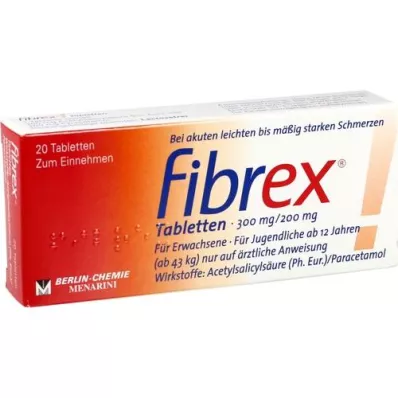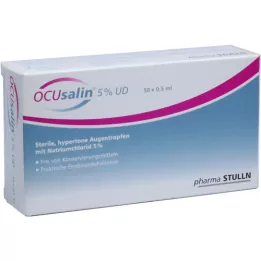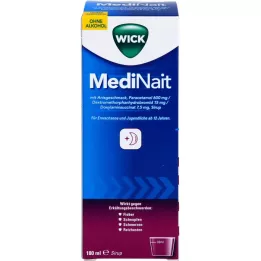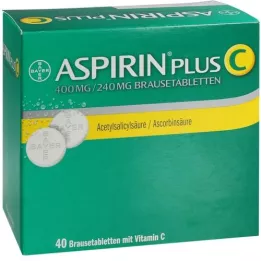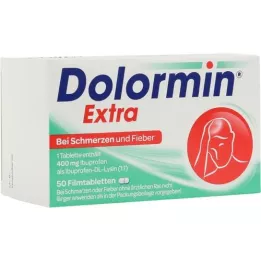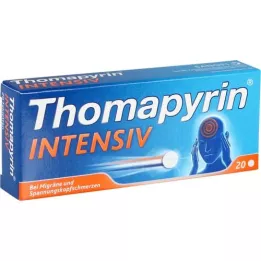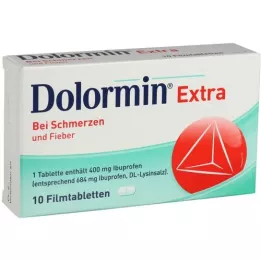FIBREX Tablets, 20 pcs
FIBREX Tabletten
Manufacturers: BERLIN-CHEMIE AG
PZN: 04085341
Dosage: Tabletten
Content: 20 St
Reward Points: 28
Availability: In stock
$8.33
$7.13
from German pharmacies to your address
Instructions for use for FIBREX Tablets, 20 pcs
Active ingredient: acetylsalicylic acid 300mg, paracetamol 200mg
Application areas:
For adults and adolescents from the age of 12 (from 43 kg) in acute light to moderately severe pain.
Hints:
Do not apply longer than 3 days or in higher doses without medical or dental advice.
In children and adolescents over the age of 12 with febrile illnesses due to the possible occurrence of Reye syndrome only on medical instructions and only apply if other measures do not work.
Detailed instructions for FIBREX Tablets, 20 pcs
Field of use
- Acetylsalicylic acid and paracetamol are active ingredients from the group of pain inhibitors and fever (analgesic/antipyretic).
- For adults and adolescents from the age of 12 (from 43 kg) in acute light to moderately severe pain.
Active ingredients / ingredients / ingredients
300 mg acetylsalicylic acid
200 mg paracetamol
Carboxymethylar, sodium salt auxiliary material (+)
Cellulose, microcrystalline auxiliary material (+)
Corn starch auxiliary substance (+)
Corn starch, pre -clerked auxiliary substance (+)
Silicium dioxide, high disperser auxiliary substance (+)
Stearic acid auxiliary material (+)
23 mg total sodium ion hedge material (+)
Total sodium ion helper (+)
Contradictions
- The medicine must not be taken,
- if they are hypersensitive to acetylsalicylic acid, paracetamol or one of the other components of the drug.
- if in the past you have reacted with asthma attacks or in other ways
- if you earlier in connection with an application of non-steroidal inflammatory inhibitors (NSAID) gastrointestinal bleeding or a breakthrough (perforation)
- if you suffer from gastric/duodenum ulcers (peptic ulcers) or bleeding
- if you have repeatedly suffered from gastrointestinal/duodenum ulcers (peptic ulcers) or bleeding (at least 2 different episodes of proven ulcers or bleeding)
- with pathologically increased bleeding tendency
- if you suffer from a serious impairment of the liver or kidney function
- in the case of severe heart muscle weakness (heart failure)
- if you take 15 mg or more methotrexate per week at the same time
- in the last 3 months of pregnancy
- of children and adolescents under the age of 12 (under 43 kg)
dosage
- Always take the medicine exactly according to instructions.
- Please ask your doctor, dentist or pharmacist if you are not quite sure.
- Unless otherwise prescribed by the doctor:
- The respective dosage interval depends on the symptoms and the maximum total daily dose.
- The maximum dose per day (24 hours) must never be exceeded, and the time interval between two applications must be at least 6 hours. The maximum dose of 4 tablets a day should not be exceeded.
- From 43 kg of youngsters from 12 years and adults: single dose 1 tablet (corresponding to 300 mg acetylsalicylic acid and and 200 mg paracetamol), maximum dose 4 tablets (corresponding to 1200 mg acetylsalicylic acid and 800 mg paracetamol)
- Special patient groups
- Patients with light or moderately serious disorders of liver or kidney function:
- In these patients and in patients with Gilbert syndrome, the dose must be reduced or dose interval extended.
- Older patients
- Due to the increased risk of side effects, these patients should begin with the lowest dosage and be monitored by a doctor
- Patients with light or moderately serious disorders of liver or kidney function:
- Duration of the application
- Do not take the medicine without a medical or dental advice for more than 3 days.
- Please speak to your doctor, dentist or Pharmacists if you have the impression that the effect of the drug is too strong or too weak.
- If you have taken a larger amount of the drug than you should:
- Dizziness and ear blades, especially in children and older patients, can be signs of serious poisoning by acetylsalicylic acid.
- With an overdose of paracetamol, complaints generally occur within 24 hours that include nausea, vomiting, loss of appetite, pallor and abdominal pain. There can also be severe liver damage.
- If you suspect an overdose with the medicine, please notify a doctor immediately. According to the severity of overdose/poisoning, this can decide on the measures necessary.
- If you forgot to take the drug
- Do not take the double dose if you have forgotten the prior intake.
- If you have any further questions about the application of the drug, ask your doctor, dentist or pharmacist.
Taking
- Take the tablets unscrewed with sufficient liquid (e.g. a glass of water).
- Do not take on an empty stomach.
Patient information
- Side effects can be reduced by using the lowest effective dose via the shortest period required for symptom control.
- In order to prevent the risk of overdose with paracetamol, it should be ensured that other medicines that are used at the same time do not contain any paracetamol.
- You should only take the medicine with special caution and under medical control
- if you are hypersensitive to other inflammatory inhibitors/anti -rheumatics (certain remedies for rheumatism or inflammation) or other allergy -causing substances
- if you are on allergies (e.g. B. with skin reactions, itching, nettle fever) or asthma, hay fever, crushing nasal mucosa (nasal polyps) or chronic respiratory diseases suffer
- with simultaneous treatment with anti -blood clotting medicines
- if you have already suffered from a gastrointestinal ulceration (peptic ulceration) or a bleeding
- if you suffer from a limited liver or kidney function due to diseases of the kidney or liver (liver inflammation, Gilbert syndrome)
- if you are chronically alcoholic
- if you suffer from high blood pressure and/or heart performance weakness (heart failure). Talk to your doctor or pharmacist about it before the start of treatment.
- before operations (even with smaller interventions such as pulling a tooth): there may be increased tendency to bleed. Please inform your doctor or dentist beforehand if you have taken the medicine.
- if you tend to be less uric acid output: By taking the medicine, a gout attack can be triggered.
- Do not take the drug without medical or dental advice for more than 3 days or in higher doses.
- The medicine belongs to a group of drugs that can affect the fertility of women. This effect is reversible after stopping the drug (reversible).
- Unwanted effects on the gastrointestinal tract
- A simultaneous application of the drug with other non-steroidal inflammatory inhibitors (NSAID), including so-called COX-2 inhibitors (cyclooxygenase-2 inhibitors), should be avoided.
- About bleeding of the gastrointestinal tract, ulcers and breakthroughs (perforations), also with fatal
Exit was reported during treatment with all non -steroidal inflammatory inhibitors (NSAID). They occurred with or without prior warning symptoms or serious events in the gastrointestinal tract in the prehistory at any time of therapy. - The risk of this is increased with increasing NSAR dose, in patients with ulcers in the history, especially with the complications bleeding or breakthrough and in the elderly. These patients should the treatment begin with the lowest available dose. Combination therapy with gastric mucosal-protecting medicines (e.g. misoprostol or proton pump inhibitor) should be considered here. This is also recommended for patients who take other medicines who increase the risk of a disease of the gastrointestinal tract.
- If you have a history of side effects on the gastrointestinal tract, especially at older age, you should report any unusual symptoms in the abdomen (especially gastrointestinal bleeding), especially at the beginning of the therapy.
- Caution is advisable if you get medicines that can increase the risk of ulcers or bleeding, such as: B. Oral corticosteroids, anti-blood clotting medication, such as warfarin, selective serotonin reuptake inhibitors that are used, among other things, to treat depressive moods, or thrombocyte aggregation inhibitors, such as acetylsalicylic acid.
- If you have gastrointestinal bleeding or ulcers during treatment with the medicine, the treatment must be stopped immediately and contact with a doctor.
- Non-steroidal inflammatory inhibitors (NSAID) should be used in patients with a gastrointestinal disease in the history (ulcerative colitis, Crohn's disease) because their condition can deteriorate.
- Unwanted effects on the cardiovascular system
- Medicines like this may be associated with a slightly increased risk of heart attacks ("heart attack") or strokes. These risks increase in higher doses and longer treatment. Do not exceed the recommended dose or duration of treatment (maximum 3 days)!
- If you have heart problems or a previous stroke or think that you could have a risk to these diseases (e.g. B. if you have high blood pressure, diabetes or high cholesterol or smokers), you should speak to your doctor or pharmacist before starting.
- Unwanted skin reactions
- Under the therapy with non-steroidal inflammatory inhibitors (NSAID), very rarely about serious skin reactions with redness and bladder formation, some with a fatal outcome (exfediative dermatitis, Stevens-Johnson syndrome and toxic epidermal necolysis/lyell syndrome).
- The highest risk of such reactions seems to exist at the beginning of therapy, since these reactions occurred in the majority of cases in the first month of treatment. At the first sign of rashes, mucosal defects or other signs of a hypersensitivity reaction, the tablets must be discontinued and a doctor must be consulted immediately.
- Other information
- If painkillers are used for a long time, headaches can occur, which may not be treated by increased doses of the drug. Ask your doctor for advice if you often suffer from headache despite taking the drug!
- When stopping abruptly, headaches and fatigue, muscle pain, nervousness and vegetative symptoms can occur after a long -dosed, non -determined use of painkillers. This deductible symptoms subside within a few days. Until then, painkillers will be reinforced and re -taking it again should take place without medical advice.
- The habitual intake of pain relievers, especially when combining several pain relieving active ingredients, can lead to permanent kidney damage with the risk of kidney failure (analgesics-nephropathy).
- The more frequent intake should also be avoided with diabetes mellitus (sugar capacity), alcoholism, rheumatic therapy, dehydration (heavy drying of the body e.g. B. after diarrhea, high outside temperatures, excessive physical stress with strong sweating), chronically to low blood pressure, serious injuries.
- Due to the fever -lowering effect, an improvement in the disease can be faked. If necessary, medical advice must be obtained.
- Children and adolescents:
- the medicine must not be used in children and adolescents under the age of 12 (under 43 kg).
- the medicine is said tondliche over 12 years with febrile illnesses are only used on medical instructions and only applied if other measures do not work. If these diseases occur with long vomiting, this can be a sign of Reye syndrome, a very rare but life-threatening illness, which requires absolutely immediate medical treatment.
- Older people
- In older patients, side effects occur more frequently after using non-steroidal inflammatory inhibitors (NSAID), in particular bleeding and breakthroughs in the stomach and intestinal area, which
may be life -threatening. Therefore, particularly careful medical monitoring is required in older patients.
- In older patients, side effects occur more frequently after using non-steroidal inflammatory inhibitors (NSAID), in particular bleeding and breakthroughs in the stomach and intestinal area, which
- Wateriness and operating machines: the drug has no influence on the traffic and operating machines. Nevertheless, caution is always required after taking a pain reliever.
- Store drug out of reach of children.
Pregnancy
- Ask your doctor or pharmacist for advice before using all medicines.
- If pregnancy is determined during the application of the drug, the doctor must be notified. You may only apply the medicine in the first and second thirds of pregnancy after consultation with your doctor. In the last third of pregnancy, the medicine must not be used due to an increased risk of complications for mother and child.
- The active ingredients pass into breast milk. Since adverse consequences for the infant have not yet become known, an interruption of breastfeeding is generally not necessary if the recommended dose is used. If higher doses are used for longer or taking higher doses.
- The medicine belongs to a group of drugs that can affect the fertility of women. This effect is reversible after stopping the drug (reversible).
Hints
Miscellaneous
- Due to the fever -lowering effect, an improvement in the disease can be faked. If necessary, medical advice must be obtained.
- The long-term use of painkillers can lead to permanent kidney damage with the risk of kidney failure (analgesics nephropathy), especially when several pain relieving active ingredients are taken.
- The long -term income of this drug can lead to an increased risk of illness for kidney failure while taking kidney -damaging substances, pre -existing kidney damage, genetic predisposition or diseases that can lead to kidney damage.
- Inform the doctor/dentist before operations
- In the case of black feces (tale chair), immediately notify the doctor
- If signs of an infection appear or worsen while taking the medication, go to the doctor immediately
- If the recommended intake is exceeded, the liver values in the blood can increase. Therefore, regular control of the liver values, especially in children, is required.
Medicines Reviews
There are no reviews for this product.
Write a review
Related Products
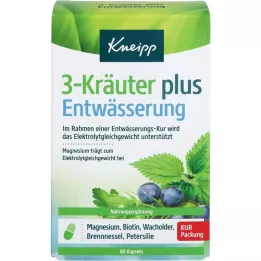
KNEIPP 3-herb plus drainage capsules, 60 pcs
KNEIPP 3-Kräuter plus Entwässerung Kapseln
$5.89 $7.36
Popular in Headache
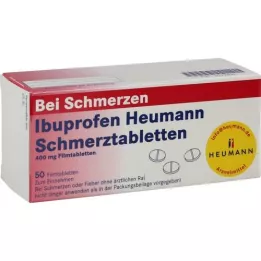
IBUPROFEN Heumann painkillers 400 mg, 50 pcs
IBUPROFEN Heumann Schmerztabletten 400 mg
$7.15 $14.29
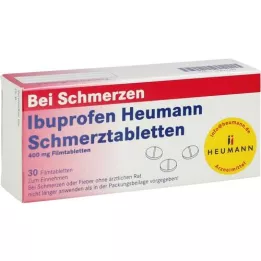
IBUPROFEN Heumann painkillers 400 mg, 30 pcs
IBUPROFEN Heumann Schmerztabletten 400 mg
$5.65 $8.79
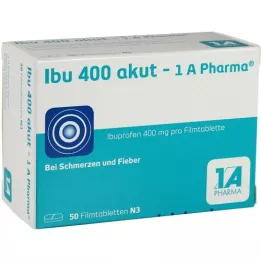
IBU 400 Akut-1a Pharma film-coated tablets, 50 pcs
IBU 400 akut-1A Pharma Filmtabletten
$5.54 $12.34
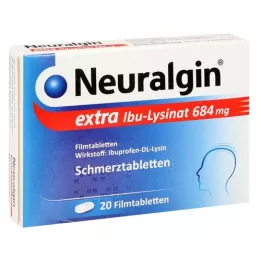
NEURALGIN Extra IBU-Lysinate film-coated tablets, 20 pcs
NEURALGIN extra Ibu-Lysinat Filmtabletten
$8.47 $13.26

